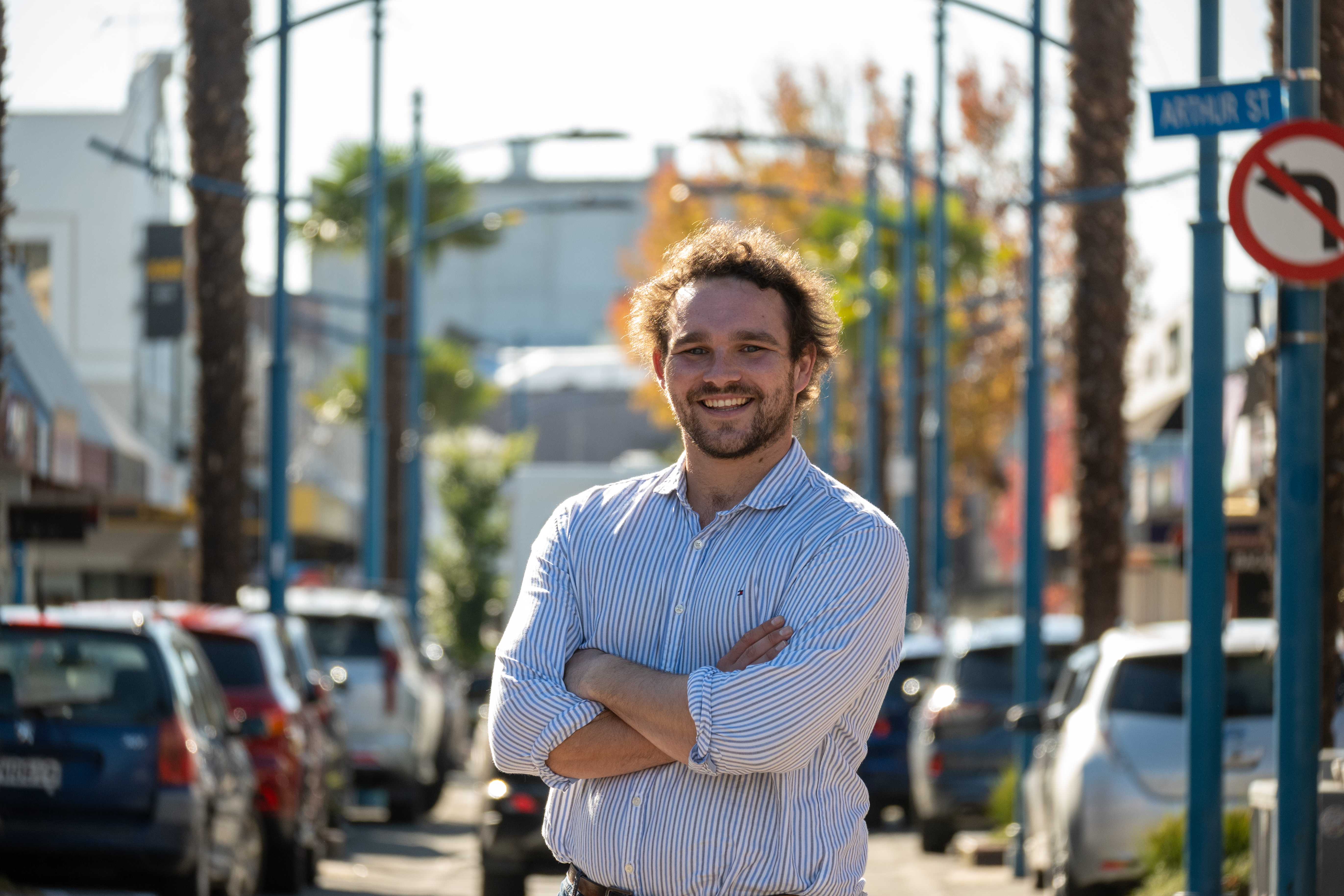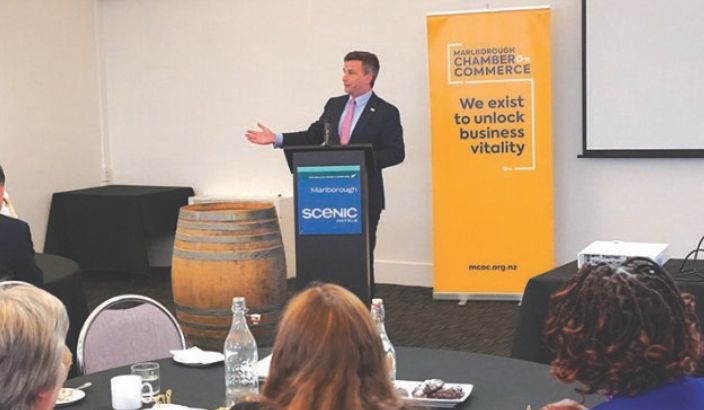Seymour sees more of Marlborough


Deputy Prime Minister David Seymour visited Marlborough last Wednesday. He sat down with the <em>Marlborough Weekly’s William Woodworth</em> to answer a few Marlborough-focused questions. Photo: William Woodworth.
Deputy Prime Minister David Seymour visited Marlborough last Wednesday, with stops at local businesses, a public meeting and a lunch with Marlborough Chamber of Commerce members. He also sat down with the Marlborough Weekly’s William Woodworth to answer a few Marlborough-focused questions.
For someone in a very high national office, what sort of preconceptions do you and the coalition Government have of Marlborough?
Well, I’ve been here a lot of times ... and I love the place. I love the wine. The people are nice, the scenery is stunning, so it’s got all of those things that you’d expect. What I’m hearing is that people are as frustrated as ever with the regulatory yoke that they’re under, and the changes that we’re making to things like the Resource Management Act are the right changes, but it’s going to take some time to get there.
On the heels of lifting earthquake building regulations in Auckland and Northland, the impact of the 2016 Kaikoura earthquake and the 2011 Christchurch earthquake still loom large in the South Island - how would you prevent it going from over regulation, which you see at the moment, into a nationwide swing completely the other way?
First and foremost, you can make your home as strong as you like. We are not taking away the right to strengthen. We are taking away the obligation to spend billions and billions of dollars nationwide on buildings where the risk to humans is very low. What we’re really doing is putting human safety at the centre of it, rather than the new building standard. One weakness in a building could invalidate the whole thing, even though the actual risk of it collapsing on people was quite low. So, you know really, we’re saving money by focusing on human safety.
Act Local is the first time national political parties are officially having candidates on a local body level. Where did that come from, and how is that relationship ongoing?
All my time as an MP, I’ve ended up dealing with council issues because, frankly, the councilors hadn’t fixed them. And so I thought, instead of just blaming the council, let’s give the voters a choice. Political brands are designed to simplify voter choice. Act Local, it means you know what you’re getting, because often people say “I got the little booklet, I didn’t know the names, and I voted for someone I don’t know if they delivered”, whereas with Act Local, you know you’re voting for cutting waste, letting people drive their cars and getting racial discrimination out of government. Whether or not you agree with the Act brand, you certainly know what you’re getting.
In your opinion, how can Marlborough innovate out of being perceived as only a wine hub?
Well, I think the opportunities won’t be predicted by a politician. There’s a great line by Sir Paul Callaghan before he died. He said, “Our strength lies in the weird stuff”. You think about a company like Gallagher. It’s a rural company involved in making electric fences for cows. Now they’re one of the biggest security contractors in the United States. That’s pretty cool, and I’m sure that there will be people in Marlborough who will end up building businesses that no politician ever predicted.
For projects like Puro’s medicinal cannabis, competitors in the UK have easier regulation, so I’m hoping to be able to help address that. Politicians still have a job, which is around good environment, for education, infrastructure and regulation. Those are the things that we’re doing to enable it.
Can you encourage stability around the future of Marlborough transport with these investments already on the ground here?
“The government’s committed to and has put aside the money for the rail-enabled ferries. Yes, we hope to be contracting the construction of those. And then, of course, it will take a few years for them to be built, but it will all be done. I don’t like just blaming the last government, but I think it’s important to recognize that when we came in, the existing ferries were worn out, and the new ones were always going to take at least four years to commission them and have them built. I mean, building a ship’s pretty hard - to bring them down here, trial them, make sure the wharves connect. There’s always going to be a whole lot of problems. And the solution that we had was unaffordable, and it was getting close to $4 billion so we faced impossible choices and went back to the drawing board. We’ll take more time, things like looking for secondhand ferries but they were said to be none available. I think we’ve taken a pretty tough situation and got a solution at half the price that will continue rail connection which has got to be worthwhile.
When the iReX ferry plans and the Combined Colleges project were cancelled many Marlburians were left feeling a bit deflated - what sort of timeframe should Marlborough be looking to for those deliverables?
Look, I can understand Marlburians’ disappointment, but the truth is, the Emperor never had any clothes. The ferry project was unaffordable. The school projects that the government had promised, schools up and down New Zealand cost twice as much as the money we had, so the Emperor was always naked. Here, what we’ve done is brought back delivery that is actually affordable, so that the things that people have been promised will actually be done. Will they take longer? Will they be different from what was initially promised? Yes, but the critical differences we can afford them.
